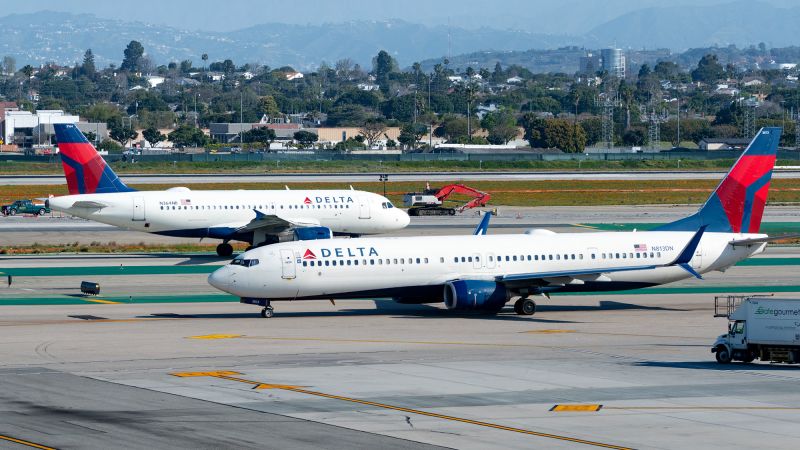Delta Air Lines reported vastly improved earnings in the first quarter, and the company said results should remain strong the rest of the year.
The Atlanta-based airline said its adjusted earnings came in at $380 million, or 45 cents a share, up from $217 million, up 75% from a year earlier. It easily topped Wall Street analysts’ consensus forecast of 36 cents a share.
Revenue of $12.6 billion was up 6% and a record for the first three months of the year. It posted the increase despite the average revenue passengers paid to fly every mile slipping 2% in the period. Passenger revenue when adjusted for capacity, another measure of fares, was flat compared to a year ago. The first quarter is typically the least profitable period of the year for US airlines.
Delta predicted it would report record revenue in the second quarter, it said it expects thinner profit margins. So it now expects earnings per share of between $2.20 to $2.50, which would be down from the record adjusted earnings per share of $2.64 a year ago. But it said it remains on target to reach full-year of $6 to $7 per share, which could be above the $6.25 a share it reported for 2023.
Delta has been less affected that some of its major rivals whose operations were disrupted by problems at Boeing. Delta has no 737 Max jets in its fleet currently, although it has placed orders for some of the jets. Only about half of its mainline jets come from Boeing, compared to about 80% of United Airlines’ fleet, and 100% of the planes flown by Southwest.
And this is expected to be a difficult quarter for the US airline industry, with all the other US airlines among America’s nine largest carriers forecast to report losses in the period, whether or not they fly Boeing or Airbus jets. With fares flat to lower and costs including labor and fuel rising, making a profit in the historically slow period is likely to prove difficult.
Delta CEO Ed Bastian said there is strong demand going forward though. The airline had its 11 busiest days for booking tickets in its history during the course of the quarter, and he says demand for business travel has been especially strong.
But he acknowledged that there are rising concerns about airline safety in the wake of a January 5 Alaska Airlines flight in which the door plug of a 737 Max blew off, leaving a gaping hole in the side of the 737 Max flight. Subsequent incidents reported in the media have only added to passenger worries.
“The headlines, you can’t escape it,” he said, but noted that safety at Delta, as well as at other airlines, is a top priority.
“US aviation travel is the safest form of transportation in the world,” he added. “It’s safer than driving, it’s safer than trains, it’s safer than walking.”
Delta has not taken a delivery of a Boeing jet since 2019. In July 2022 it placed an order for 100 of the Boeing 737 Max 10 jets, the largest version of the Max. It was originally due to start taking deliveries of those jets next year.
The Federal Aviation Administration has yet to certify that plane to carry passengers, but criticism of Boeing’s safety and the quality controls in the wake of the Alaska Air incident prompted Boeing to withdraw its request for a waiver necessary to get certification this year.
That incident prompted United Airlines CEO Scott Kirby to announce it was no longer counting on the 737 Max 10 planes it had already ordered from Boeing, saying the problem was the “straw that broke the camel’s back” for the airline’s expectations for the plane. Bastian didn’t sound much more hopeful for when Delta might get the Max 10 jets it ordered.
“I’m confident it will deliver at some point,” he said. “Whether it’s two years, three years, four years from now, I don’t think anyone knows.”
Shares of Delta gained 4% in premarket trading on the report.
This story has been updated with additional reporting and context.
Read the full article here




